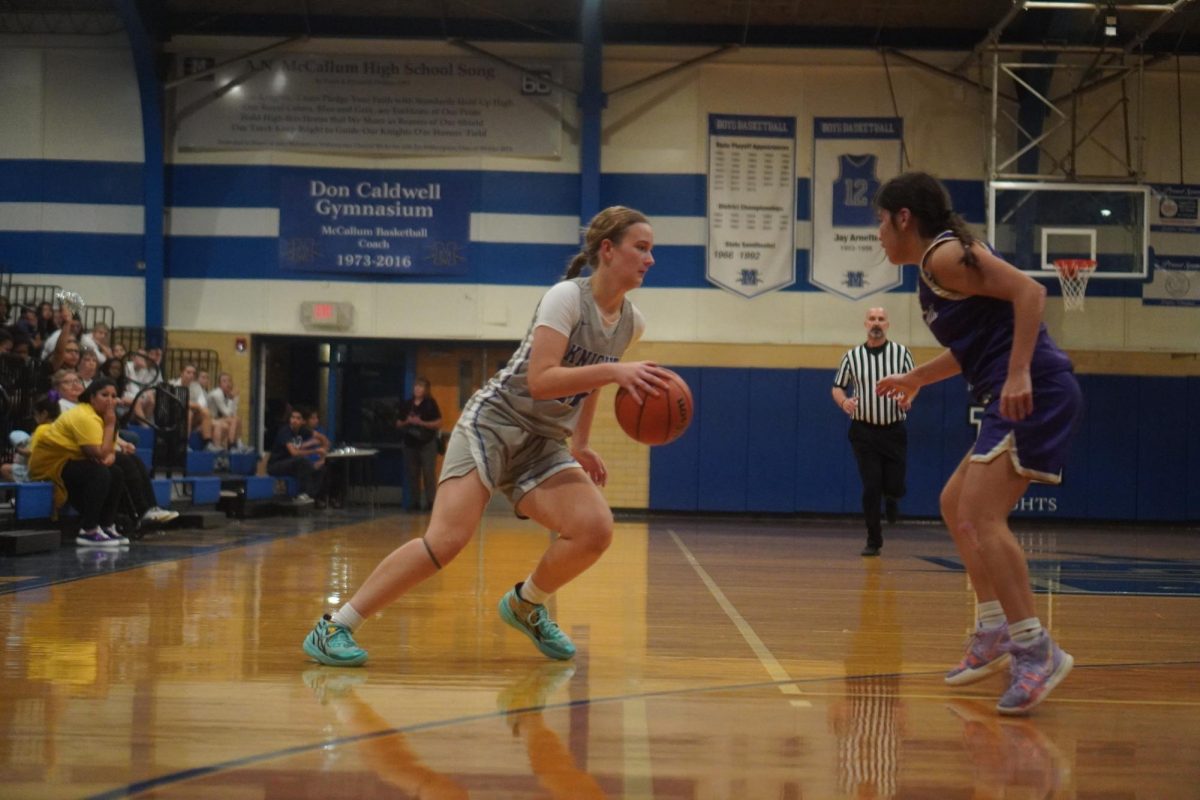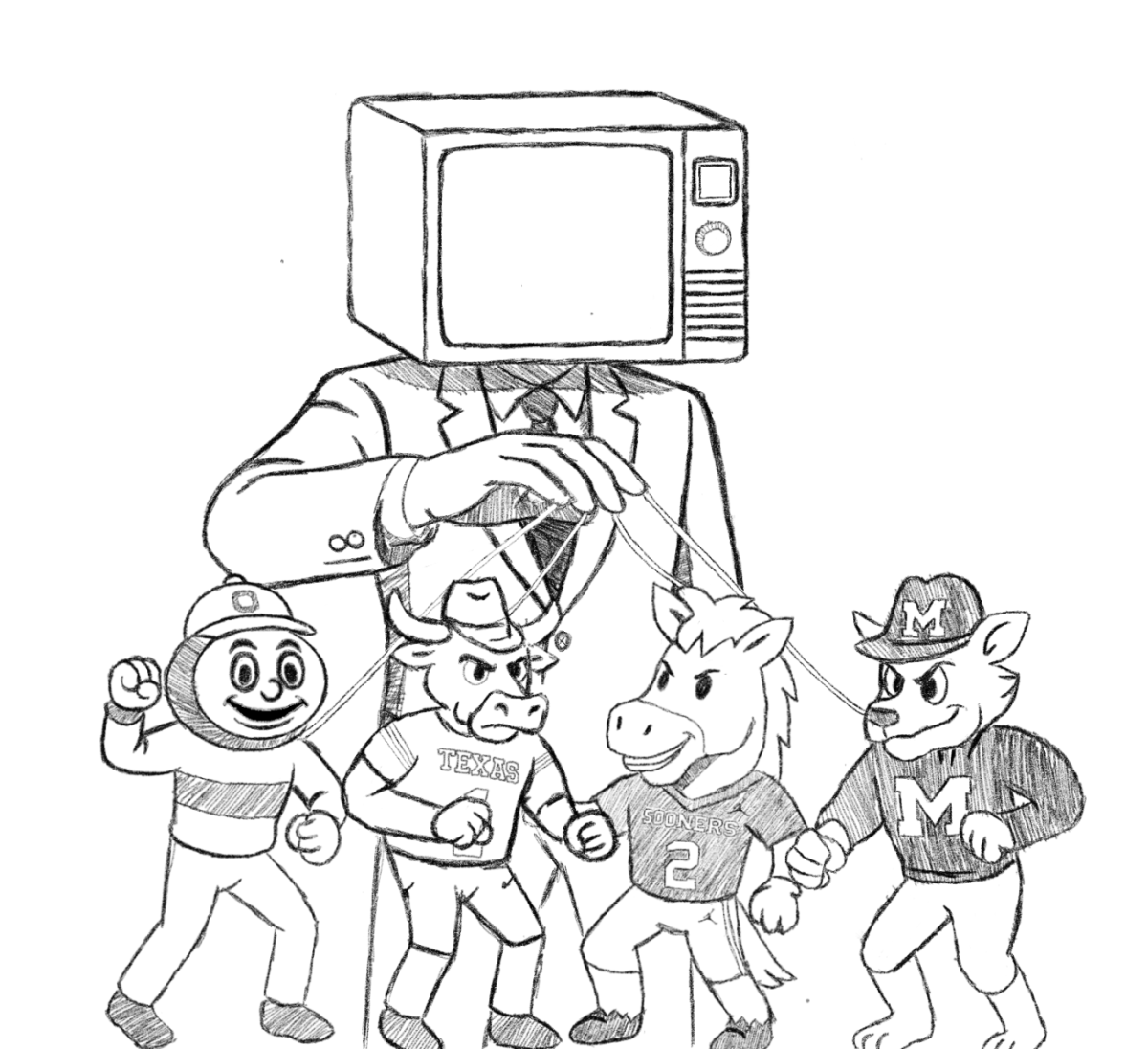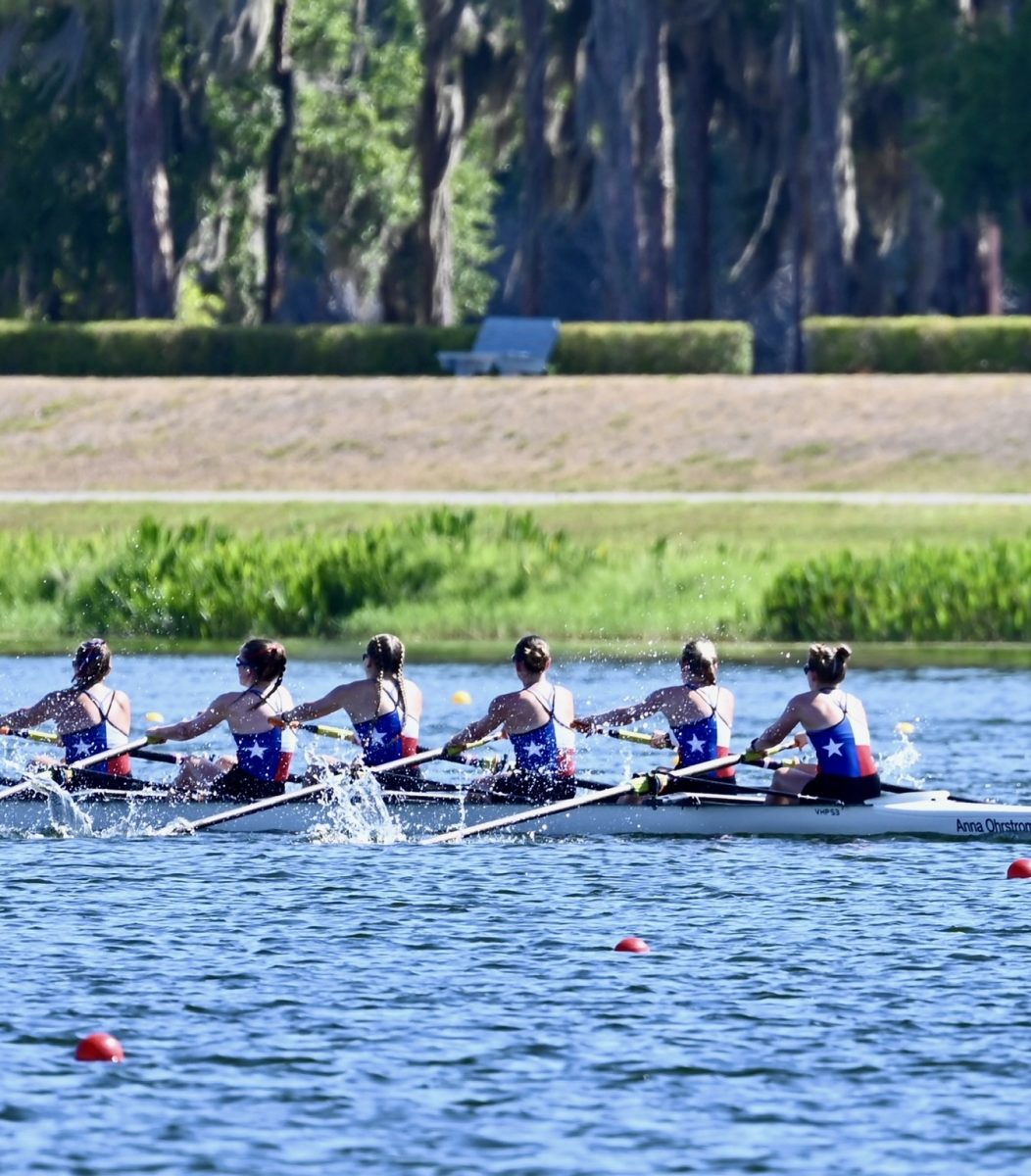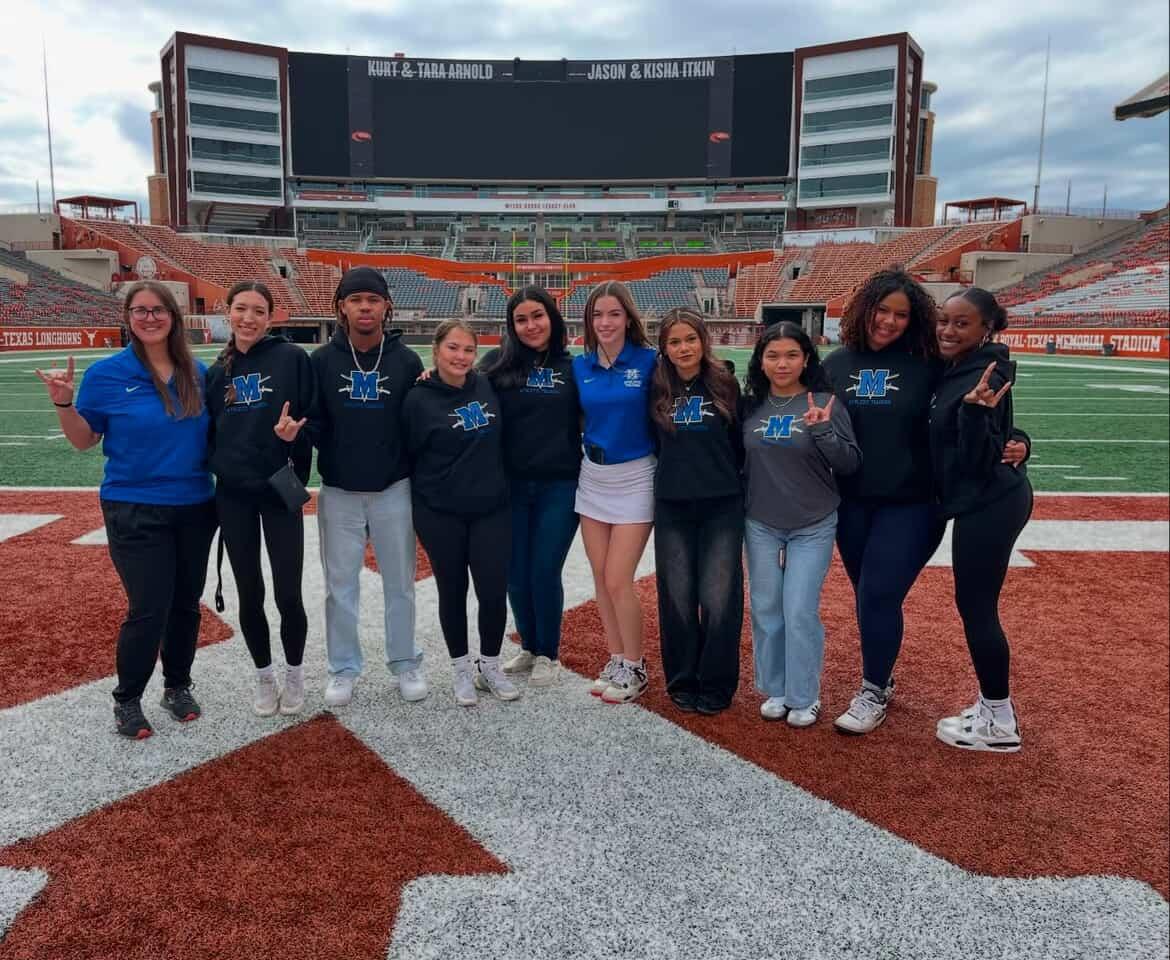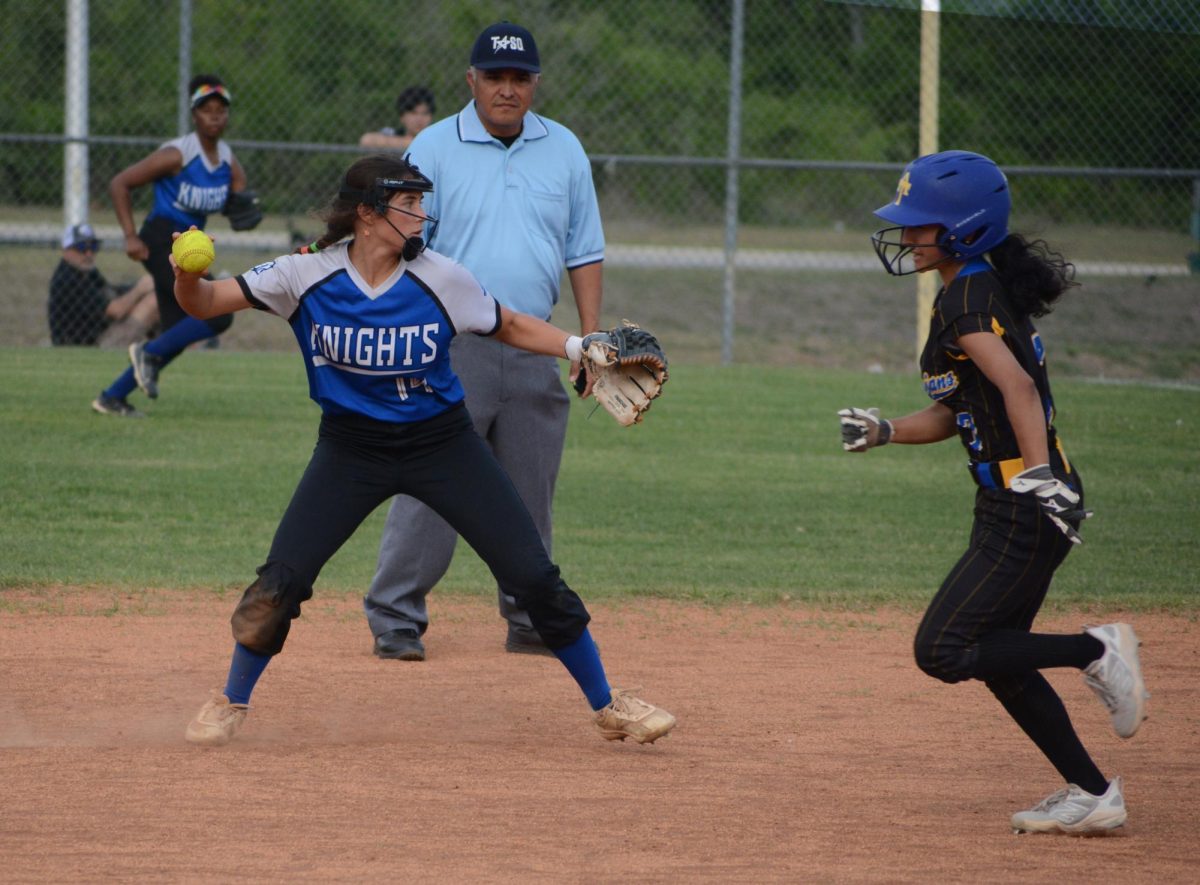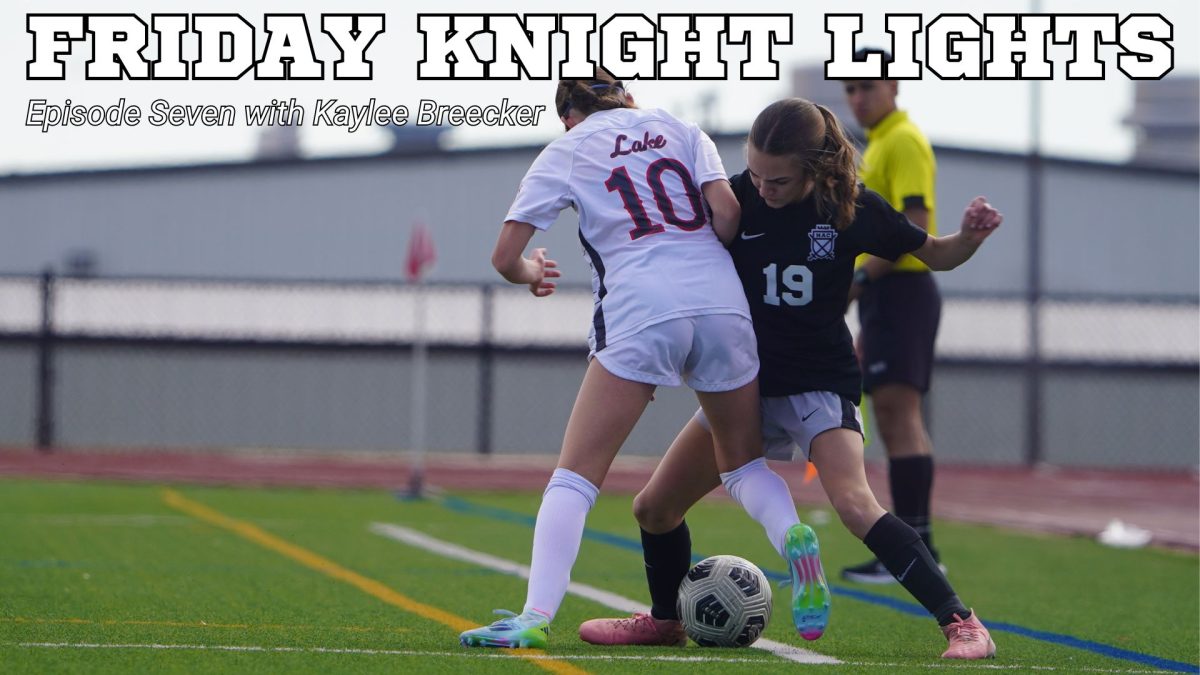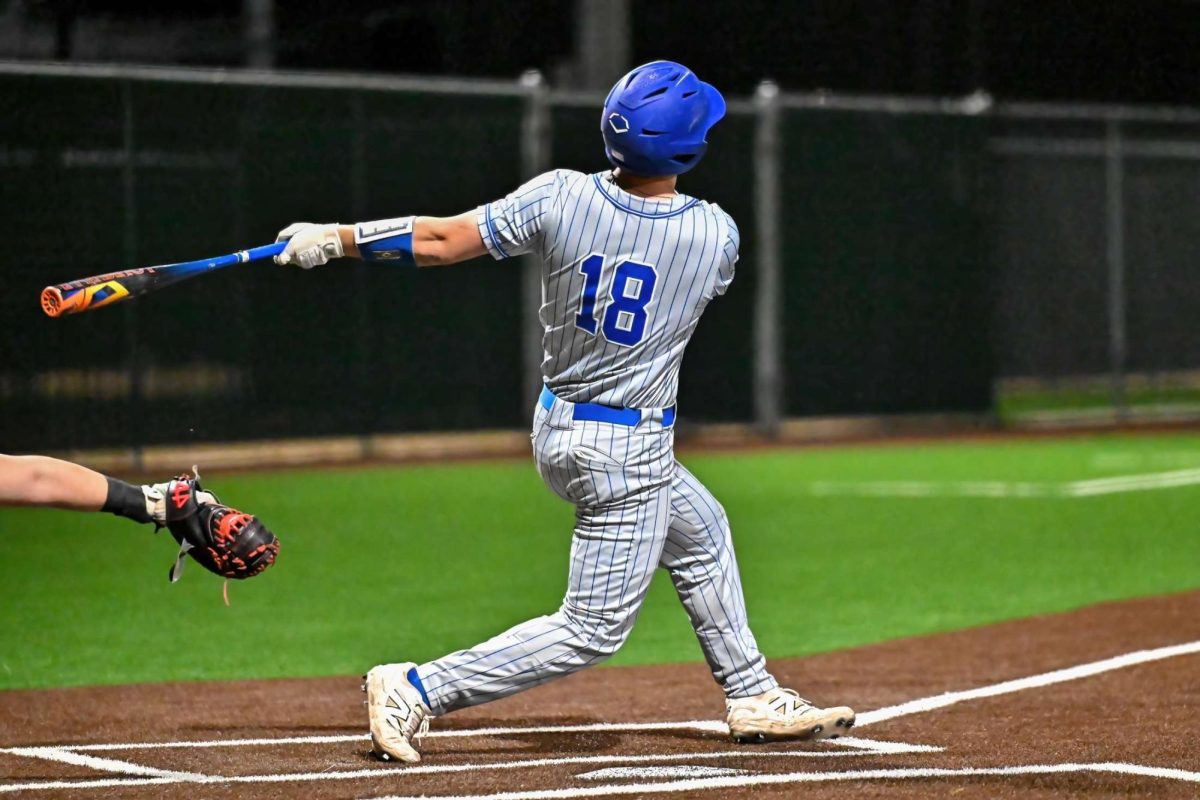Walking out of tryouts for the under-18 Austrian national basketball team in February, then sophomore Ella Burns was nervous and hopeful she didn’t make any mistakes. After waiting a month to find out if she got cut, Burns received an email congratulating her and knew that the last five years of playing basketball almost every day had paid off. She spent the next five weeks with 15 other girls at practice camps in St. Pölten, Austria.
“There were some of the best weeks of our life because it was everything that I’d worked for the previous years, and I was just really happy that I finally got the chance to play for Austria,” Burns said.
After only starting basketball at 12, Burns knew that she wanted to take her sport seriously and transferred to a sports school in Austria where she had two-hour practices in the morning and at night, as well as games on Saturday and Sunday. From there, Burns joined BBU Salzburg, a professional Bundesliga basketball team in her home city of Salzburg.
“It was kinda weird playing with older women, but they were nice and helped me adapt,” Burns said. “Since I was in the sports school, they helped me get better by letting me practice with them. Last year was a really good year playing with them. I got a lot of playing time, and my stats were pretty good.”
While she grew up in Austria, Burns traveled to Austin a lot because she has a lot of family here, and her dad went to McCallum. So when her aunt asked Burns if she wanted to come live in Austin with her, Burns knew exactly where she would go to school.
When Burns moved to the States, however, she wasn’t aware of the impending challenges that would come with UIL rules. Even though Burns played at a high level in Austria, the UIL rules don’t allow her to play at the varsity level where she wants to be and would challenge her. These rules are put in place to stop recruiting by making a transfer student play for at least a year at the JV level. Because of this stipulation, Burns went to a UIL meeting to try to appeal the decision to have her marked down as a transfer student.
“I’m really upset,” Burns said. “The whole UIL thing just frustrates me because [playing varsity] was one of the main reasons why I came here and now I can’t play. I like all of the [JV] players, and I enjoy their company, but I would like to have a bit more of a challenge. It just upsets me because I feel like I should lie to do the right thing, but I won’t lie.”
In Burns’ mind, checking facts would make more sense to determine if a student can play on a certain team or not.
“I don’t think our school has enough money to recruit anyone, and it’s a small school in Austin, so it doesn’t make sense for me to go here,” Burns said. “Also, my entire family on my dad’s side went to McCallum. It just upsets me because I feel like I should lie to do the right thing but I won’t.”
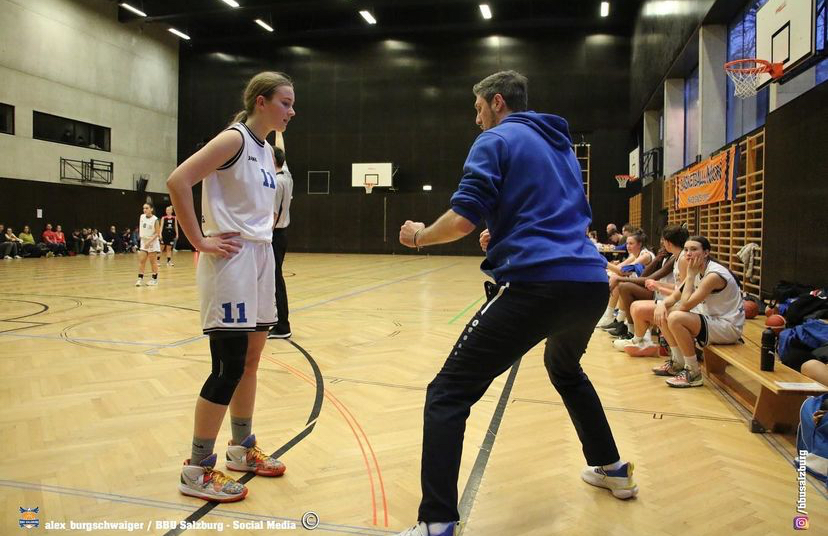
Because of the rules, Burns practices with varsity and plays with JV, a decision made by the basketball program and varsity coach Carly Kehn.
To Kehn, the UIL rules are very black-and-white and limit the opportunities players can have.
“My big frustration that I tried to get across but couldn’t was that there are people that I see all the time that are breaking the rules like buying a place here so [they] could say that’s where [they] live, but that’s not [really where they] live,” Kehn said. “In this situation, she’s a dual citizen. She can move to the United States, but we can’t expect her parents to move here. They expect her to sit out a year and not play the level that challenges her the best.”
Though she understands why the rules are in place, Kehn said she doesn’t always agree with them, specifically in Burns’ case.
“She took a big risk, and I think we are being punished for being honest,” Kehn said. “Rules are made for those who are breaking them, and then they still break them.”
One of the main reasons that Burns wanted to play in the United States was because she wants to play college basketball in the U.S.
“In Austria, it’s not really a thing to play college basketball,” Burns said. “LSU would be my dream college, but I don’t know how to get there. Coach Miller played college basketball, and she said that she would help me through everything that I need.”
Elizabeth Miller was a walk-on Division 1 player for the University of Wisconsin. Burns first met Miller in September when Miller became an assistant coach for all of the basketball teams.
“The college process for recruiting is very different in the United States than it is in Austria,” Miller said. “I was talking to her to help her figure out how to even go about being recruited. With basketball, that means you play AAU, and the college coaches can see you, and then basically you have film and send it out to other coaches, and they have a chance to get in contact with you if they like how you play and show interest in [Burns’] skills.”
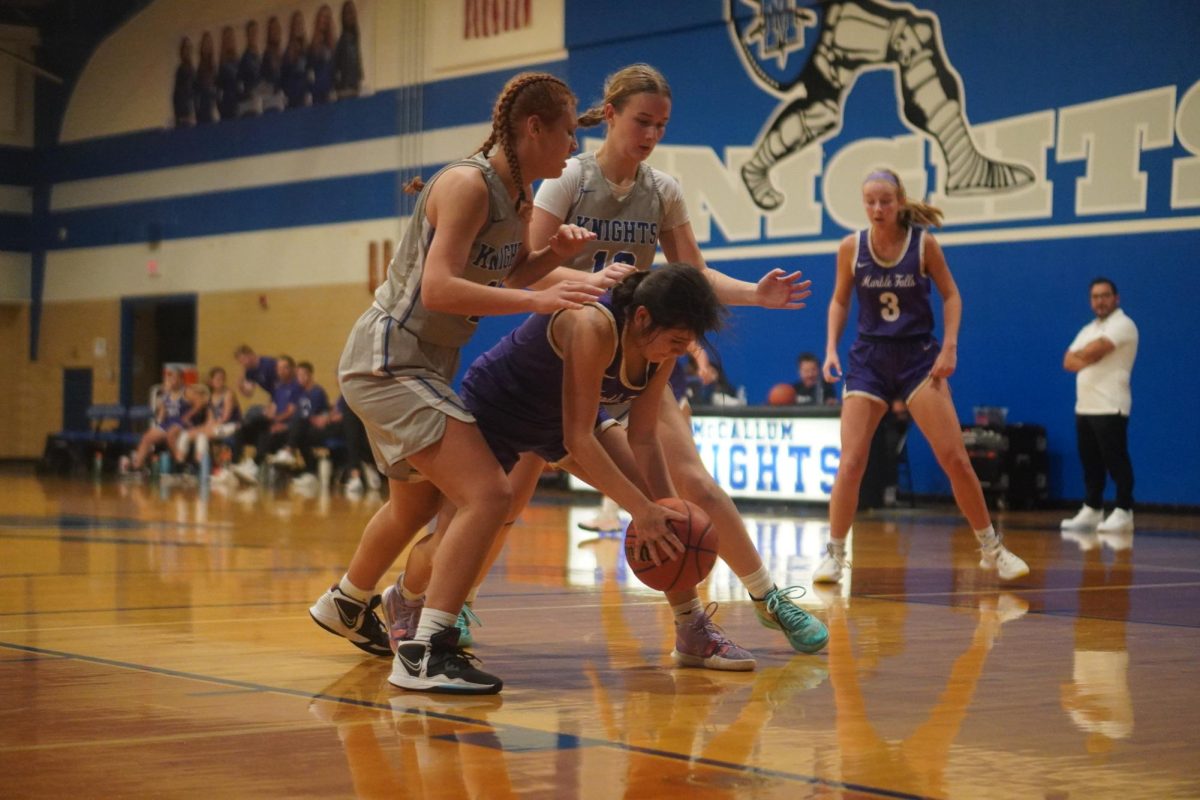
AAU, Amateur Athletic Union, is club basketball that occur from the end of the high school season in February to July. During the AAU season, college coaches can come to the games and watch players that they might not be able to see because college and high school basketball overlaps. While Burns doesn’t play AAU currently, Miller and Kehn will help her make highlight reels from the junior varsity games to send out to college coaches.
“We’re going to help send that out to coaches and based on what they want or where we think she can play, they can get in contact with her that way,” Miller said. “There’s still time for her to be seen by college coaches. She seems like she wants to play in the United States, so I think she’ll be able to do that. When I asked her what she wanted to do in college, she said play basketball and I think that’s No. 1.”
Miller has seen a lot of what it takes to be a good basketball player in Burns and the positive impact that Burns has on the basketball program.
“From a basketball standpoint, she’s very aggressive, very skilled on offense, a very fundamentally sound player, and I think she’s a great teammate,” Miller said. “She practices with varsity, so our girls see all the good things she does, but then knowing she’s not going to be there in the game, they can learn from her, carrying that over from their own game. On the flip side, junior varsity doesn’t practice with her, but she’s a good leader and addition on the court when she plays with them, and they’re able to kinda elevate their game along with her.”
Kehn also acknowledges the impact that Burns has had on the teams even in her short amount of time.
“Europe plays with a different style, much more finesse that we don’t necessarily do at McCallum,” Kehn said. “She’s brought that perspective and taught some of our kids just through her actions and during practices. We always like it when we can bring someone into the mold who has a different history, perspective and experience when it comes to the sport.”
According to Kehn, as much as Burns is dedicated to the sport and helps the team on the court, she also is a major asset off the court.
“She understands not only the game but fits our mold of what we want our basketball players to be off the court: kind to others, hard-working, dedicated in the classroom–and she has all of those assets,” Kehn said. “It’s a really big jump to come from across the ocean and come to a new high school where you have some family but you’re missing your immediate family and still trying to make the best of tough situations.”
Varsity captain Esme Barraz and the varsity team are also close to Burns on and off the court, despite not playing together often.
“She’s really fun, makes the most funny jokes, and has a really good attitude,” Barraz said. “She just takes things really well and plays along. On the court, she’s a really good player, very aggressive and overall really athletic.”
Junior La’Nicia Barrios, Burns’ teammate on JV, also looks up to Burns. According to Barrios, Burns can be described as “goated” and perseverent.
“She has a good vision of the court without the ball, she knows the weak spots of the defense, and back door cuts which can help us when we are lost in plays,” Barrios said. “She’s also super friendly and nice.”
While her future in the United States isn’t certain and the UIL rules are affecting Burns’ playing level, basketball is something that Burns loves and will continue to love.
“For me, basketball is kind of like a drug,” Burns said. “I hate going a day without basketball or not being able to play basketball. It’s just so much fun, even when you have to do some exhausting or boring stuff in practice. It relieves stress, and it’s a fun way to do something with your friends.”



